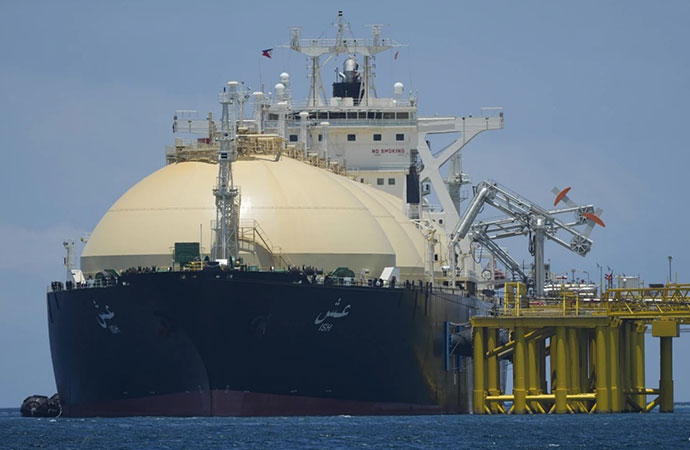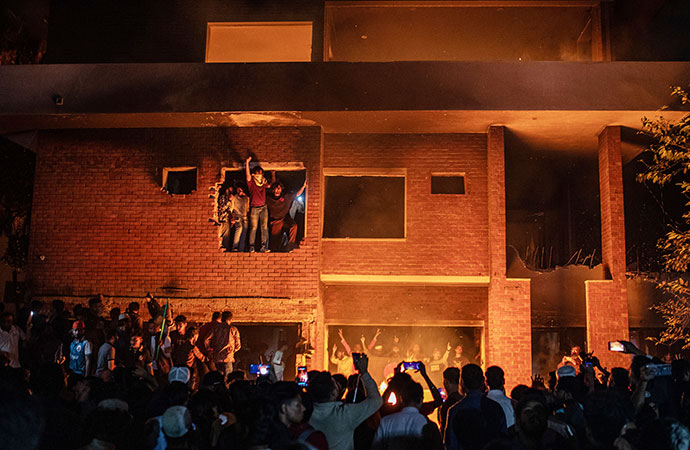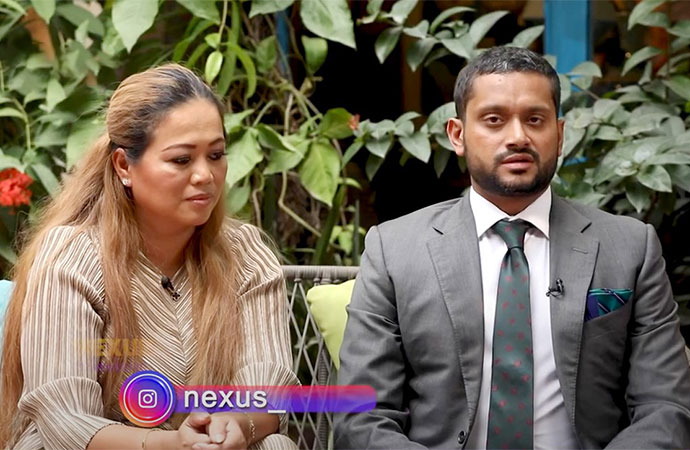Featured 1

Photo: AP/UNB
While the non-binding MoU signed with a US shale startup, Argent LNG, is not expected to boost domestic supplies before 2030 (at the earliest), the energy crisis facing the country looks set to grow more acute in the short-to-medium term. It stands to pose a serious challenge to the interim government in the year ahead, with Ramadan and then the hotter months of the year soon to be knocking on the door.
It is well-known by now, how the deposed Awami League-led government pursued a strategy of LNG imports to meet the country's growing energy requirements, particularly in the second half of its 15-year spell in power. In doing so, domestic gas exploration was largely ignored, something that became apparent, and was called out in these pages (and elsewhere), while the AL was still in power. Belatedly, towards the end, they took up the issue of finding takers among the international oil companies for the country's 15 offshore blocks. But a tender floated in March 2024, that initially attracted a lot of attention from some of the oil majors, including ExxonMobil, eventually fell through without any bids, as political upheaval rendered the business climate far too uncertain for the kind of long-term, large-scale investment involved in offshore exploration.
According to Petrobangla's latest figures, the daily demand for gas in the country currently stands at 380 million cubic feet (mcf). For several years, a combination of demand management and rationing has allowed it to get by with supply of around 300 mcf per day, with 220 mcf coming from domestic gas sources, and the remaining being met through LNG imports. Recently though, domestic production has fallen below 200 million cubic feet, as known reserves keep depleting.
The production of natural gas from active fields is consistently declining, leading to the need to import at high prices to meet the shortfall. LNG provided the added advantage of being easily transferable to the country's existing pipeline network for natural gas. Since 2022, energy imports have been the principal strain on the country's foreign currency reserves. If production continues to decrease, as may be expected without new discoveries on the horizon, these imports will only increase further.
In a bid to delay the inevitable, the government this week announced it is prioritising the renovation of 31 existing wells in the country's known gas fields, to augment local gas production. This is part of a larger plan under the Ministry of Power and Energy to implement a project involving the renovation, exploration, and development of 100 wells. BAPEX, which handles the country's drilling and exploration activities, is preparing to first proceed with the ones earmarked for renovation.
As of 2024, the country had 9 trillion cubic feet (tcf) of proven reserves remaining, having exhausted over 70 percent (21 tcf) of its total reserves, that Petrobangla counts at 28.8 tcf. Greater efficiency, less wastage and capturing the last available drop - these are all admirable targets. But achieving true energy security, we are likely to find, calls for larger and bolder initiatives.

























Leave a Comment
Recent Posts
Pedaling Through the Mangroves ...
The journey from the bustling streets of Barishal to the serene, emera ...
Why the Interim Government mus ...
Two weeks out from what is expected to be a red letter day in the figh ...
Doesn’t matter who thinks what about Bangladesh deci ..
The Other Lenin
US President Donald Trump said his administration
Govt moves to merge BIDA, BEZA, BEPZA, MIDA